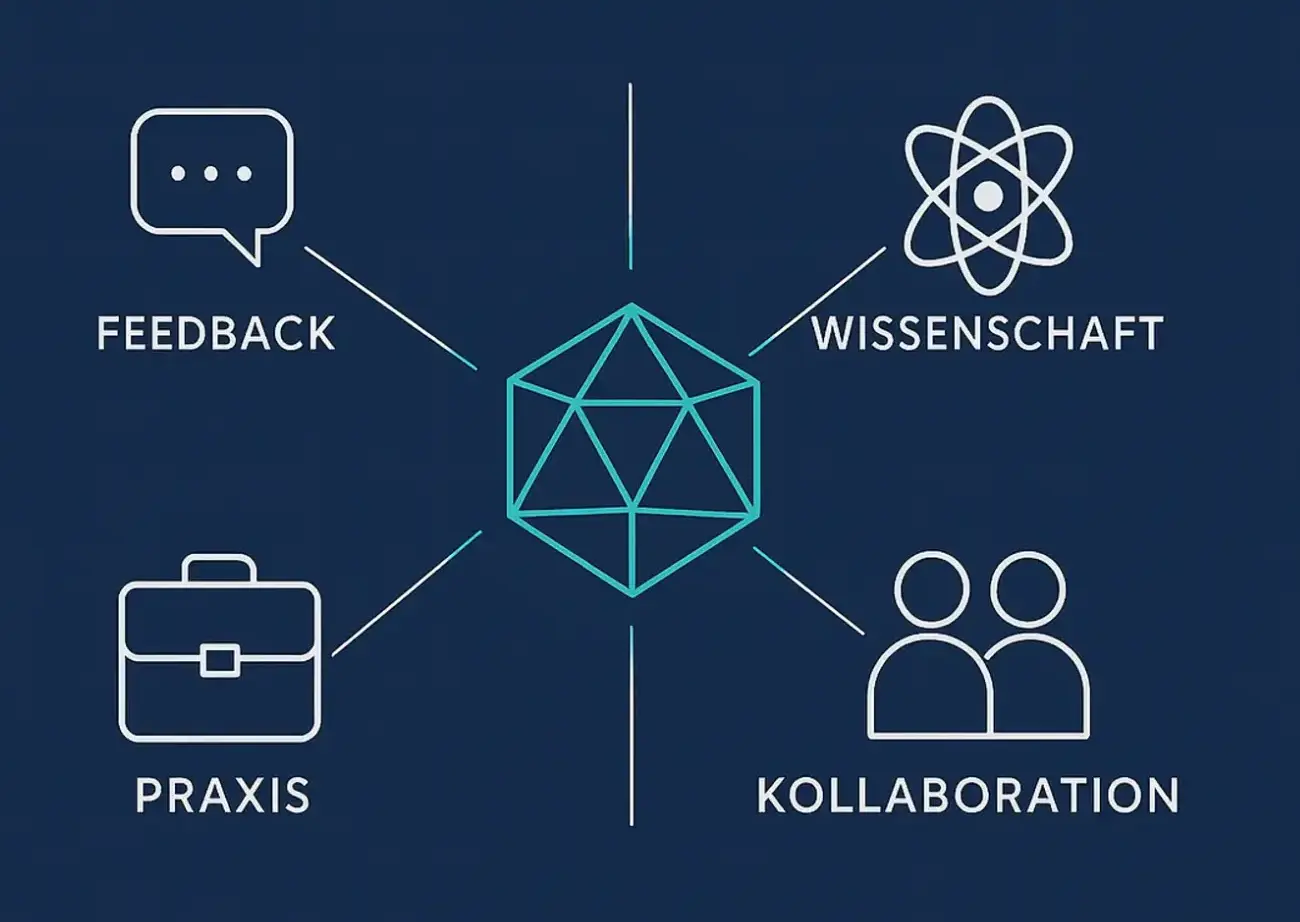Interkulturelles Training für Unternehmen
Praxisnahe Inhouse- & Online-Trainings zur Stärkung Ihrer globalen Teams














Was ist interkulturelles Training?
Kundenstimmen - Interkulturelles Training
Tüv Süd
Standort Hamburg
„Vielen Dank für das hervorragende Training. Ich habe sehr viele Denkanstöße mitgenommen. Spannend, lehrreich und perfekt für den Berufsalltag“
B. Braun Melsungen
Großraum Frankfurt
„Der Workshop hat mir an sehr vielen Stellen die Augen geöffnet. Ich freue mich, die Tipps umzusetzen”
Magna Automotive
Großraum Frankfurt
„Tolles Training, mit sehr vielen praxisnahen Beispielen. Kann ich jedem, der mit dem ‚globalen Süden‘ arbeitet, wärmstens empfehlen!“
Der Nutzen: Reibungsverluste senken, globale Teams befähigen
Ein interkulturelles Seminar ist kein „Nice-to-have“, sondern ein Produktivitätshebel. Wenn internationale Teams aneinander vorbeireden, entstehen Verzögerungen, doppelte Arbeit und vermeidbare Konflikte. Unser Ansatz: interkulturelle Kompetenz systematisch entwickeln, damit Führungskräfte und Mitarbeitende sicher handeln – in Meetings, Projekten und Verhandlungen. Wir starten bei den geschäftsrelevanten Mustern: Entscheidungswege, Hierarchie- und Feedbackkultur, Umgang mit Zeit und Verbindlichkeit. Sie lernen, diese Unterschiede zu erkennen, klar zu kommunizieren und Missverständnisse früh zu entschärfen. So sinken Reibungsverluste messbar – und Projekte kommen planbar voran. Das Training verbindet Praxisfälle aus Ihrem Unternehmen mit kompakten Modellen (z. B. Kontext-/Direktheit, Machtorientierung). Übungen und Rollenspiele sorgen für den Transfer in den Alltag. Führungskräfte erhalten Tools für globale Teamführung: gemeinsame Regeln etablieren, Erwartungen sauber setzen und Entscheidungen tragfähig machen.
Typische Anwendungen:
- Zusammenarbeit in internationalen Teams (DACH, EMEA, APAC) verbessern
- Konflikte vermeiden und eskalationsfähig moderieren
- Internationale Märkte verstehen: Stakeholder, Kaufmotive, Business-Etikette
- Onboarding von Expats und Reboarding nach Auslandseinsätzen
- Vorbereitung auf interkulturelle Verhandlungen mit Kunden und Lieferanten
Formate: Inhouse & Online, deutsch/englisch, von fokussierten Workshops (½–1 Tag) bis zu 2-Tage-Intensivworkshops mit Coaching-Baustein. Auf Wunsch integrieren wir Follow-up-Sessions für nachhaltige Umsetzung und Kennzahlen (z.B. Meeting-Durchlaufzeiten, Eskalationsquote).
Ihr Nutzen auf den Punkt: weniger Missverständnisse, schnellere Abstimmungen, höhere Verbindlichkeit – und Teams, die kulturelle Vielfalt als Leistungsvorteil nutzen. Möchten Sie interkulturelle Kompetenz gezielt ausbauen und Reibungsverluste senken? Sprechen wir über Ihr Setting – wir empfehlen die passende Weiterbildung & Coaching für Ihr Unternehmen.
Inhalte & Ablauf: Was Sie im Seminar lernen
Unser Seminar verbindet theoretische Fundierung mit hoher Praxisrelevanz. Die Module sind flexibel und werden an Ihre spezifische Unternehmensrealität angepasst:
- Kulturdimensionen verstehen: Analyse und Anwendung der renommierten Modelle von Geert Hofstede, Edward T. Hall und Fons Trompenaars.
- Kommunikation meistern: Unterschiede zwischen direkter und indirekter Kommunikation sowie High- vs. Low-Context Kulturen erkennen.
- Konflikte lösen: Effektive Strategien für das Konfliktmanagement und Feedback in internationalen Teams.
- Transfer sichern: Interaktive Praxissimulationen, Rollenspiele und Fallbeispiele aus Ihrem Geschäftsalltag.
Vom Kultur-Verständnis zum Vertragsabschluss
Kulturelle Kompetenz ist das Fundament. Doch wie setzen Sie Ihre Preise und Interessen durch, ohne die Beziehung zu gefährden?
Für harte Verhandlungstaktik empfehlen wir unser Schwesterunternehmen Schoen - Verhandlungsinstitut für Internationales Verhandlungstraining.

Trainingsschwerpunkte für globale Schlüsselmärkte
Unsere Expertise umfasst spezialisierte Trainings für die anspruchsvollsten Wirtschaftsräume der Welt. Wir bereiten Ihre Teams gezielt auf die kulturellen Besonderheiten von China, Japan und Indien vor.
Häufige Fragen zu Interkulturellem Training
Was bringt ein interkulturelles Training für Unternehmen?
Interkulturelle Trainings erhöhen die Handlungskompetenz von Mitarbeitern im globalen Geschäft. Studien zeigen, dass Unternehmen durch gezielte Vorbereitung Reibungsverluste in der Kommunikation um bis zu 30% senken und die Effizienz in internationalen Projektteams signifikant steigern. Ziel ist die Vermeidung kostspieliger Missverständnisse und der Aufbau stabiler Geschäftsbeziehungen.
Welche Methoden werden im Training angewendet?
Wir arbeiten nach einem wissenschaftlich fundierten Mix aus Kognition und Interaktion. Dazu gehören Critical Incidents (Fallstudien), Simulationen (z.B. Verhandlungssituationen), der Einsatz von Kulturdimensionen (nach Hofstede/Hall) und der Perspektivwechsel durch Rollenspiele. Dies sichert den Transfer von der Theorie in die tägliche Praxis.
Ist das Training für spezifische Länder oder allgemein ausgerichtet?
Unser allgemeines interkulturelles Training legt das Fundament für weltweite Agilität (Culture-General). Für spezifische Märkte bieten wir vertiefende Ländermodule (z.B. China, USA, Indien) an, die auf diesem Fundament aufbauen. Diese Kombination gewährleistet sowohl breite Sensibilisierung als auch spezifisches Expertenwissen.
Starten Sie jetzt die Optimierung Ihrer internationalen Zusammenarbeit
Jetzt Angebot anfordern:




